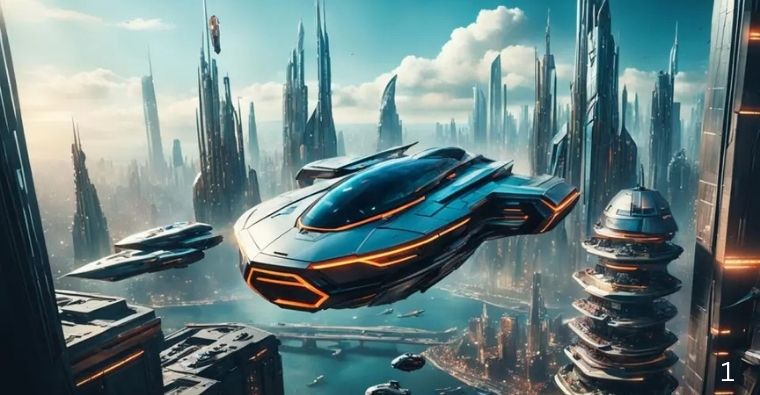The Evolution of Sci-Fi Movies: From Classics to Modern Masterpieces
Science fiction (sci-fi) movies have fascinated audiences for decades, offering a glimpse into futuristic worlds, advanced technologies, and profound philosophical questions. The genre has evolved significantly over time, reflecting advancements in technology, changing societal concerns, and innovative storytelling. Let’s explore the journey of sci-fi movies from their classic origins to modern cinematic masterpieces.
The Birth of Sci-Fi Cinema: The Early Classics
The early 20th century saw the emergence of sci-fi films that laid the groundwork for the genre. These movies relied on innovative practical effects and compelling narratives to captivate audiences.
- "A Trip to the Moon" (1902): Directed by Georges Méliès, this silent film is considered one of the first sci-fi movies. Its whimsical depiction of a lunar journey remains iconic.
- "Metropolis" (1927): Fritz Lang’s masterpiece explored themes of industrialization and class struggles through stunning visuals and groundbreaking special effects.
The Golden Age of Sci-Fi (1950s-1960s)
Post-World War II, sci-fi movies gained popularity, reflecting Cold War anxieties and the rapid progress of technology. Alien invasions, nuclear threats, and space exploration became recurring themes.
- "The Day the Earth Stood Still" (1951): A cautionary tale about humanity’s self-destruction, this film highlighted the genre’s ability to address serious social issues.
- "2001: A Space Odyssey" (1968): Directed by Stanley Kubrick, this visionary film blended philosophical questions with groundbreaking visual effects, redefining the genre.
The Sci-Fi Blockbuster Era (1970s-1990s)
The 1970s ushered in the era of blockbuster sci-fi movies, driven by advances in special effects and ambitious storytelling.
- "Star Wars" (1977): George Lucas’ epic space opera became a cultural phenomenon, combining mythological storytelling with cutting-edge effects.
- "Blade Runner" (1982): Ridley Scott’s dystopian vision of the future explored identity, humanity, and artificial intelligence.
- "Jurassic Park" (1993): Steven Spielberg revolutionized sci-fi with realistic CGI, bringing dinosaurs to life like never before.
Modern Sci-Fi: Innovation and Complexity (2000s-Present)
Modern sci-fi movies are characterized by sophisticated storytelling, philosophical depth, and cutting-edge technology. They often blend genres and appeal to both mainstream and niche audiences.
- "Inception" (2010): Christopher Nolan’s mind-bending exploration of dreams and reality showcased the genre’s intellectual potential.
- "Arrival" (2016): Denis Villeneuve’s emotionally resonant tale of alien communication emphasized the human aspects of sci-fi.
- "Dune" (2021): A visually stunning adaptation of Frank Herbert’s novel, "Dune" demonstrated how modern filmmakers bring classic sci-fi literature to life.
Trends Shaping the Future of Sci-Fi Movies
- Diverse Storytelling: Sci-fi is increasingly exploring diverse perspectives, highlighting underrepresented voices and cultures.
- Advanced Visual Effects: Technologies like CGI and virtual reality continue to push the boundaries of what’s possible on screen.
- Blending Genres: Modern sci-fi often merges with drama, horror, and comedy, offering fresh and innovative narratives.
Why Sci-Fi Movies Continue to Captivate
Sci-fi movies resonate with audiences because they spark curiosity, inspire innovation, and offer a mirror to society. From questioning the ethics of AI to imagining life beyond Earth, the genre challenges us to think beyond our limitations.




Comments (0)